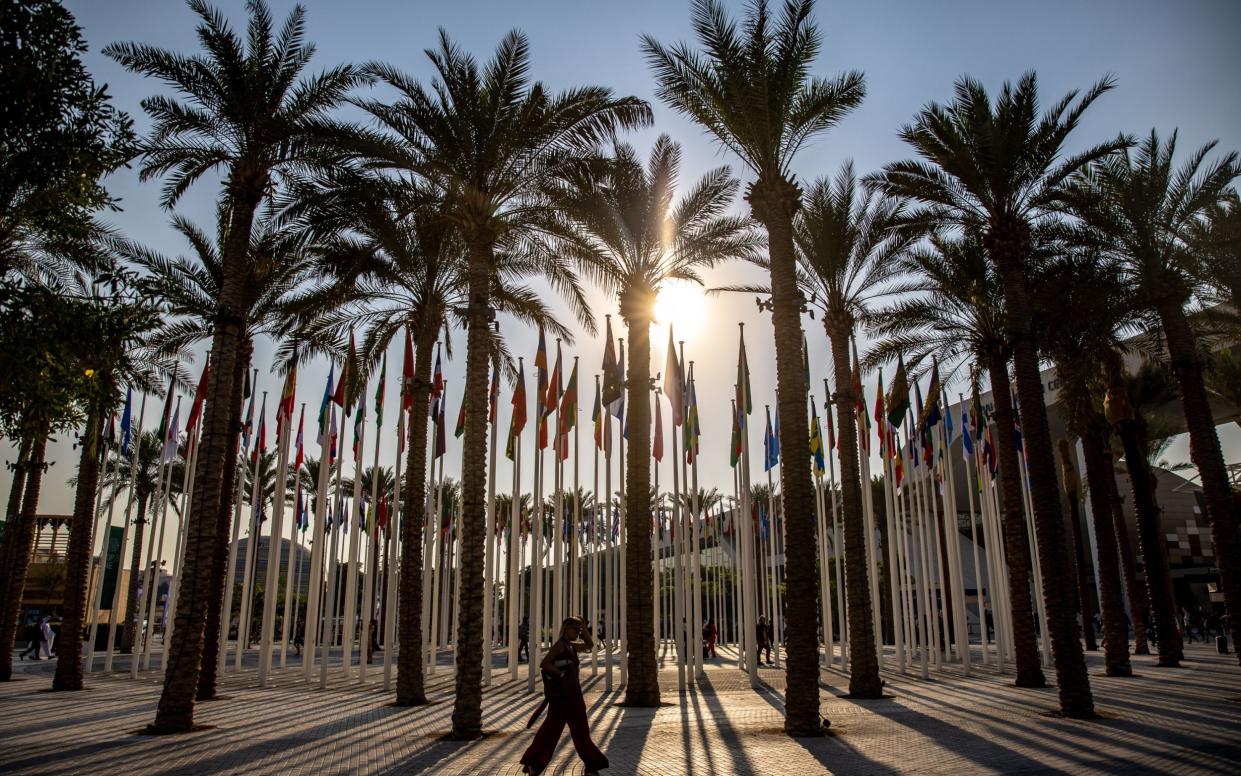Act now to stop climate change from turbo-charging infectious disease, scientists warn

More than 100 scientists and policy makers have warned world leaders that urgent action is needed to prevent climate change fuelling the spread of infectious diseases across the world.
The research consortium studying the epidemiological fallout of climate change said severe recent flare-ups of cholera and dengue showed the threat posed by warmer temperatures.
Existing infections are becoming more prevalent and spreading beyond their traditional regions of transmission, as warmer conditions extend the range of disease-carriers like mosquitoes.
Extreme weather like storms and floods are also overwhelming sanitation and health infrastructure in some of the world’s poorest countries, leading to more disease.
In a report launched at Cop28, the Climate Amplified Diseases and Epidemics (Climade) consortium warned leaders not to underestimate the relationship between climate change and infections.

“While some might think that climate change and epidemics are either exaggerated or transient, there is overwhelming evidence linking climate change to the surge of disease outbreaks and epidemics,” the report said.
“It is no longer a question of ‘if’, but ‘when’ the next epidemic will be set off by these events.”
The global health costs of climate change have been high on the agenda at this year’s Cop28 talks.
Recent 2022 heatwaves in Europe showed one possible effect of rising temperatures, causing nearly 70,000 excess deaths in vulnerable people like the elderly.
And research last year estimated nearly three-fifths of the world’s disease-causing organisms could be aggravated by climate change.
“This distressing phenomenon is not a distant projection but a stark reality currently unfolding before us,” Climade said.
Prof Tulio de Oliviera, the consortium’s leader, said the threat from shifting patterns of infectious disease had also become increasingly clear, with diseases like dengue, malaria and West Nile virus heading to Europe and America.
He told the Telegraph: “One thing that is going to become quite clear is that these epidemics will and are coming to the Global north, even including malaria.”
Don’t wait for the epidemics to arrive
Increasing preparedness and surveillance, and investing in medicines to treat these tropical diseases, would be many times cheaper than waiting for epidemics to arrive, he said.
Recent years have seen unusually intense disease outbreaks in unexpected places, as changing climate means disease-carrying pathogens like mosquitoes can survive in wider latitudes and altitudes, Climade said.
Mosquito-borne dengue fever has killed at least 5,500 people in the 20 worst-hit countries this year, up nearly a third since 2022. Vietnam and Bangladesh have both seen record numbers of cases.
The UK Government this week said it was expanding its mosquito surveillance network across the south of England to counter the growing threat of dengue.
The mosquito which carries the infection, the Aedes Albopictus species, is moving around 93 miles north every year in Europe, research shows. Over the past two years, a record number of cases were detected in several countries across the continent, including France, Italy and most recently Cyprus.

South America has meanwhile suffered record outbreaks of the debilitating mosquito-borne chikungunya infection. More than 210,000 cases were reported in the first months of 2023.
The disease, which is often mis-diagnosed as malaria, can leave victims with crippling joint pains lasting for years.
America meanwhile detected its first ever local cases of malaria this year, in Texas, Florida, Maryland and Arkansas, and Colorado reported its deadliest West Nile virus outbreak on record.
Extreme weather has also sparked major disease outbreaks in recent years. Both Pakistan and Malawi have suffered huge cholera waves after flooding caused by unusually heavy storms and rainfall.
In 2022, Pakistan recorded hundreds of thousands of cases of the deadly infection; the following year, Malawi confirmed 57,000 cases and 1,733 deaths, where it usually records only a few hundred infections during each rainy season.
Prof de Oliveira said attendees including donors at the Cop28 summit in Dubai were concerned about the threat to health from climate change. “I think that they realise the association and the concern.”
On December 3, global donors pledged over £617 million to defeat neglected tropical diseases often affected by climate change. This included money to eradicate lymphatic filariasis, or elephantiasis, and river blindness from Africa and Yemen.
Protect yourself and your family by learning more about Global Health Security

